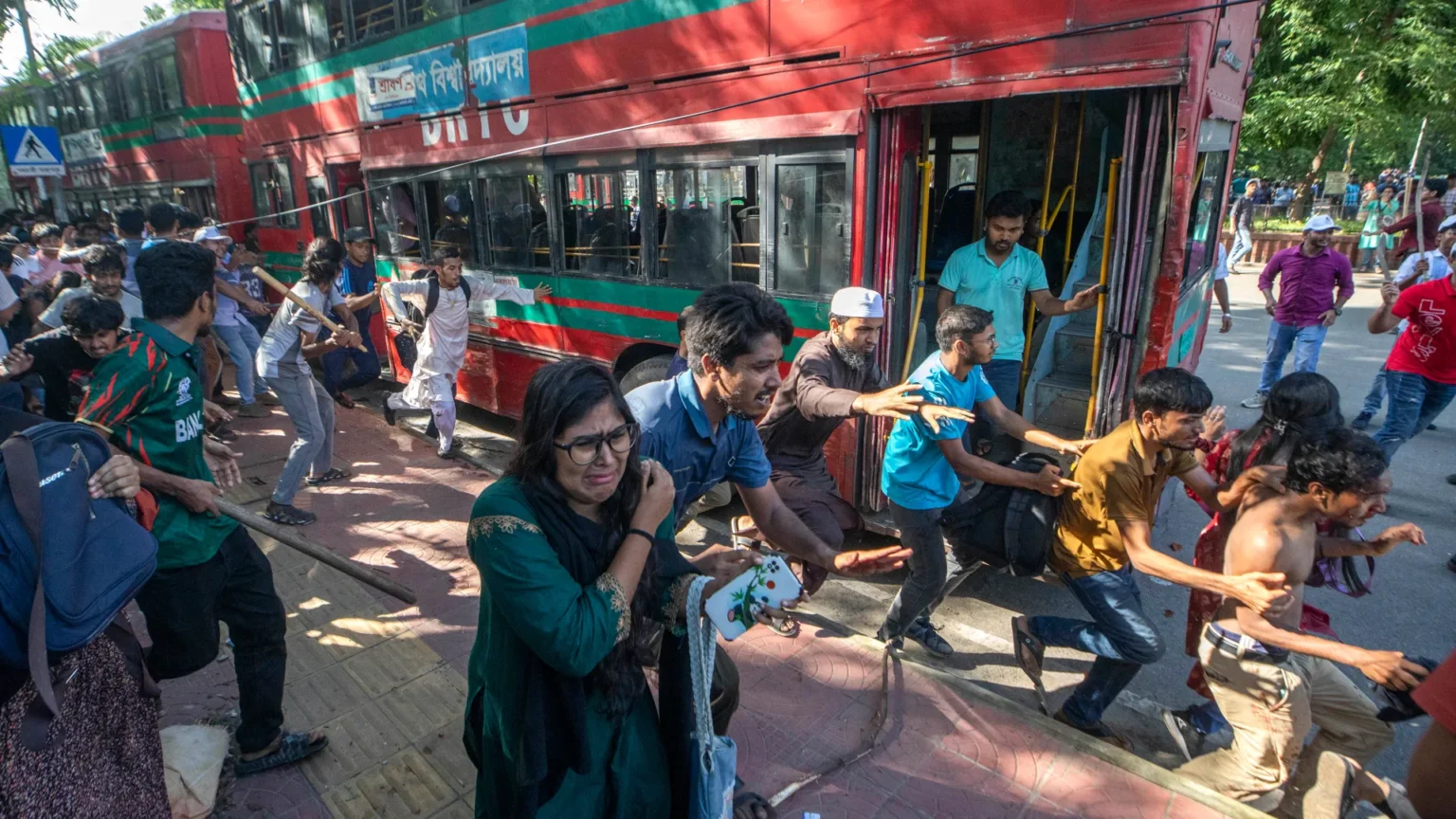Student protesters demanding an end to quotas for government jobs in Bangladesh called on Thursday for a complete shutdown nationwide, after deadly clashes this week killed six and injured hundreds.
Angered by high youth unemployment, with nearly 32 million out of work or education among a population of 170 million, the students have pressed for the abolition of a quota of 30 percent reservations for the families of freedom fighters.
“We will go ahead with our plans for complete shutdown … All establishments will remain closed,” protest coordinator Nahid Islam told Reuters.
“Only hospitals and emergency services will remain operational, with ambulance services being the sole permitted transport.”
Many government and private offices were open on Thursday in the capital, Dhaka, with three-wheelers and motorcycles on its streets, although public buses were fewer than usual.
Authorities had closed all public and private universities indefinitely from Wednesday and sent riot police and the Border Guard paramilitary force to university campuses to ensure law and order.
The protests are the first significant challenge to Prime Minister Sheikh Hasina’s government since she won a fourth straight term in January in an election boycotted by the opposition Bangladesh Nationalist Party (BNP).
In an address to the nation on Wednesday, Hasina promised her government would set up a judicial panel to investigate the deaths after police fired bullets and tear gas to scatter protesters.
On August 7, the Supreme Court will hear the government’s appeal against a High Court verdict that ordered reinstatement of the 30 percent reservation for the families of those who fought in the 1971 war of independence from Pakistan, she added.
Hasina asked the students to be patient until the verdict.
The violence was sparked by nationwide clashes between thousands of protesters and members of the student wing of Hasina’s ruling party, the Awami League. At least three students were among the six killed in Tuesday’s clashes, police said.
The demonstrations intensified after Hasina, the daughter of Sheikh Mujibur Rahman, who led Bangladesh’s independence from Pakistan, refused to meet the protesters’ demands.
Rights groups, such as Amnesty International, as well as the United Nations and the United States, have urged Bangladesh to protect peaceful protesters from violence.




